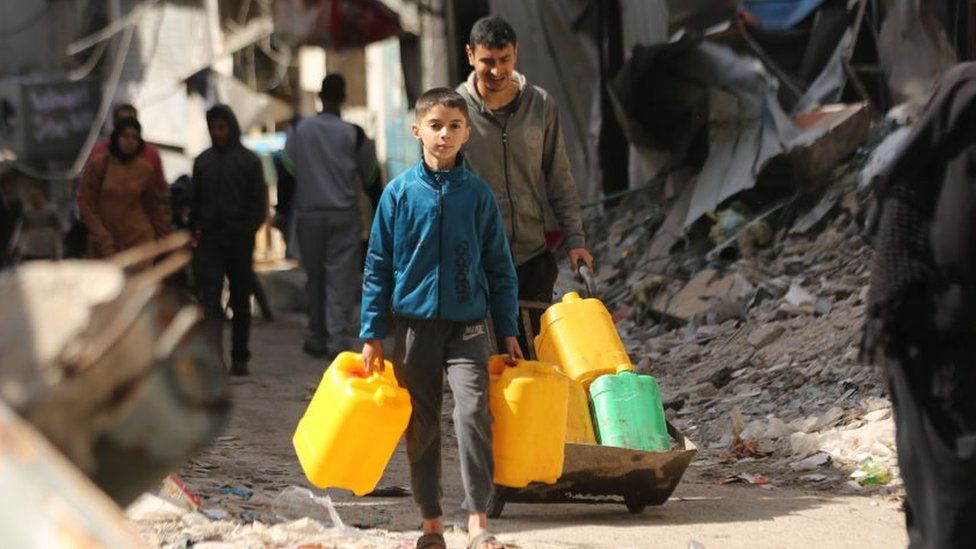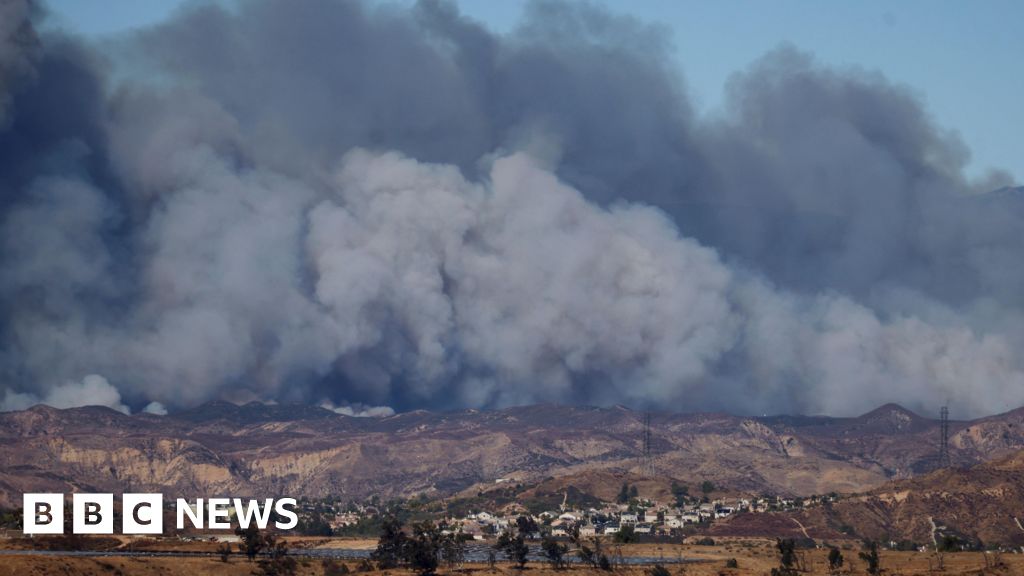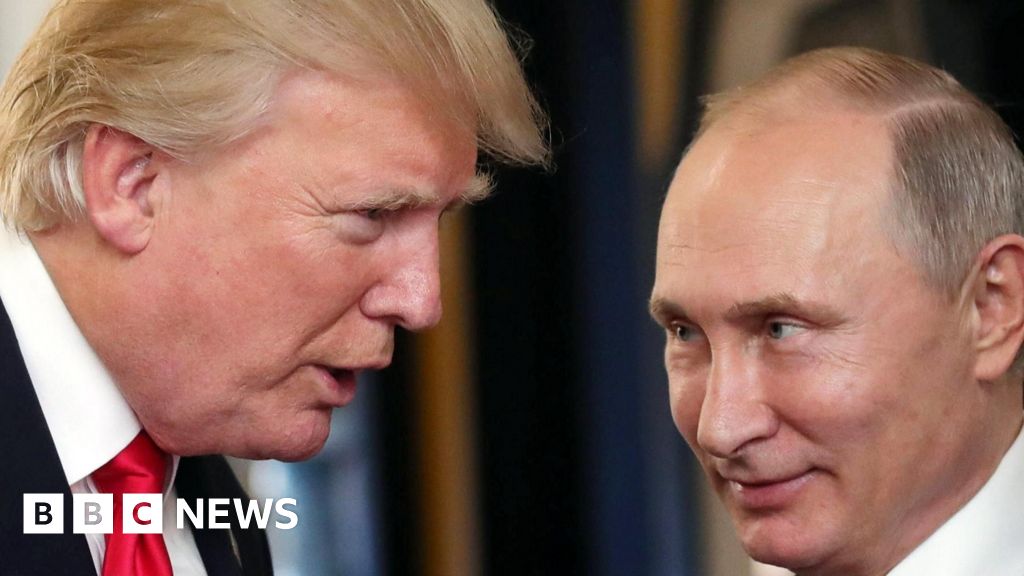ARTICLE AD BOX
 Image source, Getty Images
Image source, Getty Images
The UN has warned of famine in Gaza after nearly six months of war
By Yolande Knell
BBC News, Jerusalem
Hopes had been high over the past week following talks in Paris that there could be a new Gaza ceasefire deal in place for the start of the Islamic holy month of Ramadan next week.
However, while Hamas has now sent a delegation to Cairo for further negotiations with Egyptian and Qatari mediators, Israel has not. This looks like a serious new block.
Israeli officials - quoted in local media - demand clear answers from Hamas on key issues as well as a list of the surviving Israeli hostages who could be released with an agreement.
Meanwhile, a senior Hamas official, Dr Basem Naim, told the BBC on Sunday that "practically, it is impossible to know who is still alive" because of continuing Israeli bombing.
"They are in different areas with different groups. We have asked for a ceasefire to collect that data," he added.
Dr Naim went on to say that such "valuable information" about the hostages could not be given "for free". He, and other senior Hamas figures, have also been continuing to demand a full ceasefire and withdrawal of Israeli troops from Gaza, rather than a temporary truce.
The US and regional players with leverage will now be putting pressure on both Israel and Hamas trying to shore up recent progress on the potential deal.
This would reportedly see some 40 Israeli hostages released in exchange for about 10 times as many Palestinian prisoners being freed from Israeli jails.
More than 130 hostages are still believed to be held by Hamas. Israeli officials have said that at least 30 of them are dead.
Over the course of a proposed 40-day truce, there would be a surge in desperately needed aid entering into Gaza.
Without a deal, there is a higher threat of a further spread of tensions during Ramadan, which this year is due to begin on 10 or 11 March, depending on the lunar calendar.
Israel is expected to impose restrictions on access for Palestinians to the holiest Muslim site in occupied East Jerusalem, the al-Aqsa Mosque compound, citing its security concerns.
The site - which is also the holiest place in Judaism, known as Temple Mount - has often been a flashpoint for violence in the decades-old Israel-Palestinian conflict.
Hamas is well aware of international fears about a new conflagration and has previously used al-Aqsa to raise the stakes.
Last week, in a televised address, the leader of the Islamist group, Ismail Haniyeh, claimed Hamas was showing flexibility in negotiations, but also called on Palestinians in the occupied West Bank and Jerusalem to march to the mosque to pray on the first day of Ramadan.
International pressure for a ceasefire deal has ratcheted up with the dire humanitarian conditions in Gaza where, according to the UN, hundreds of thousands of people are facing famine following nearly six months of war.
"Given the immense scale of suffering, there must be an immediate ceasefire for at least the next six weeks, which is what is currently on the table," the US Vice-President Kamala Harris told an event in Alabama. "This will get the hostages out and get a significant amount of aid in."
"People in Gaza are starving. The conditions are inhumane and our common humanity compels us to act," Ms Harris went on.
Image source, Getty Images
Image caption,The United States has begun making aid drops into Gaza
Her comments were some of the strongest language used yet to describe the situation by a senior US government official and reflect the growing frustration within Washington - the closest ally of Israel - about developments in the war.
Increasingly what is happening on the ground in Gaza is hurting President Biden's presidential re-election campaign.
In Israel, there is also intense domestic pressure on the war cabinet to agree a new deal from the families of the hostages.
Thousands of Israelis joined them for the last leg of a four-day solidarity march, which began close to the Gaza border at one of the sites that was a focus of the deadly 7 October Hamas attacks, and ended in Jerusalem on Saturday night.
They held up Israeli flags and posters of the hostages.
Speaking at the rally, Sharon Sharabi whose brother, Eli, is still believed to be held in Hamas captivity, said: "We've lost four members of our family, the Sharabi family - my family, your family. We do not intend - listen carefully, leaders of Israel - we do not intend to bring a fifth coffin here."

 10 months ago
81
10 months ago
81








 English (US) ·
English (US) ·